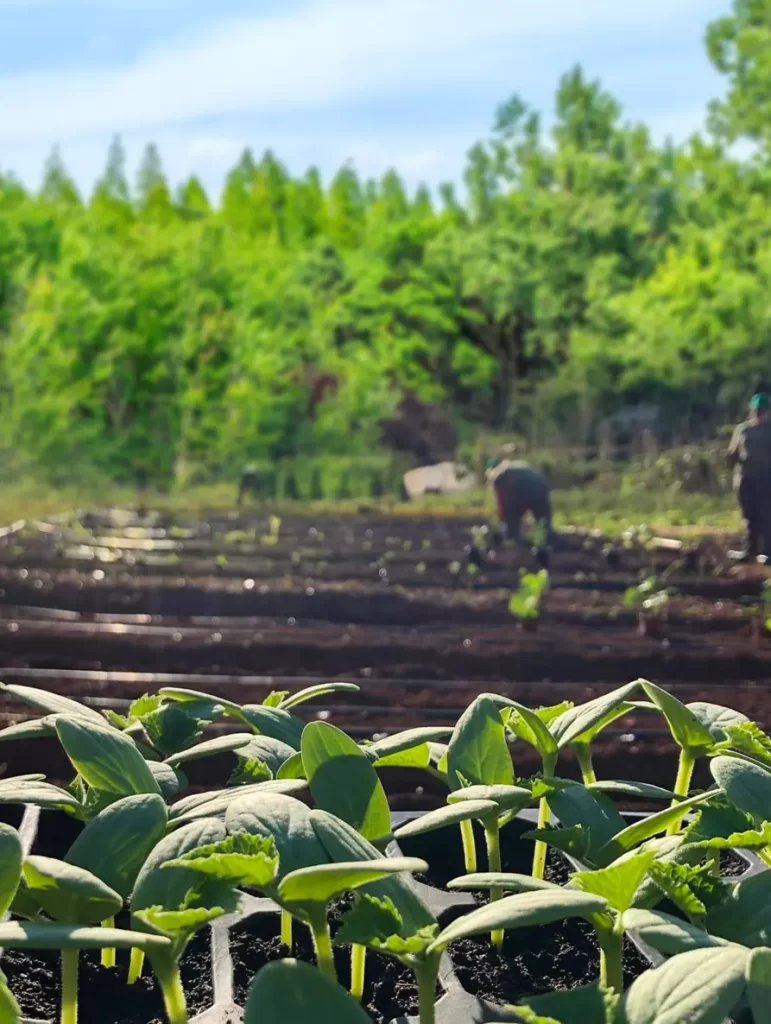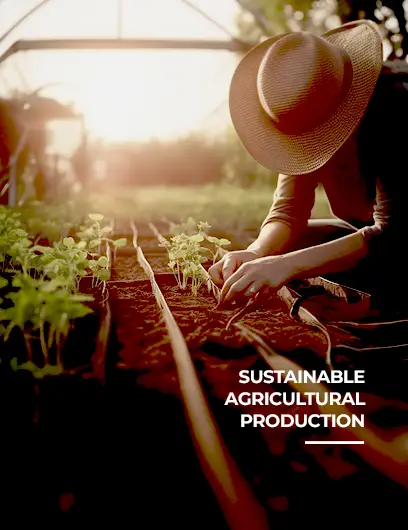Degree Obtained: Master’s Degree in Tropical Agroforestry
Level of training: Master’s Degree
Duration: 4 semesters
Mode: Presential
SNIES Code: 54483
Qualified Registration: Resolution No. 1373 of January 28, 2016, granted by MINEDUCACION
Total Credits: 60
Number of Credits I Semester: 14
Credit value Year 2024: $ 741.000
Tuition Value I Semester Year 2024: $ 10.374.000 *
Academic Space: Calle 222 # 55 – 37
Contact: Vandree Julián Palacios
Phone: (60 1) 6684700, extension: 121 or 127
E-mail: [email protected] – [email protected]
*The tuition fee from the second academic semester onwards will depend on the number of academic credits enrolled.
We are a University with High Quality Institutional Accreditation: Resolution 017390 of December 27, 2019 (for 4 years), granted by MINEDUCATION.
Why study MASTER’S DEGREE IN TROPICAL AGROFORESTRY
MASTER’S DEGREE IN TROPICAL AGROFORESTRY
Study our Master’s Degree in Tropical Agroforestry and become a researcher capable of contributing to the solution of current problems facing the agricultural sector: diversification of production, protection and conservation of biodiversity, generation of environmental services: carbon fixation and storage, soil and water conservation.
Objective of the programme
To train human talent with academic and research skills in agroforestry under a systemic vision that allows the researcher to contribute to the resolution of problems in the agricultural sector.
PROFILES
Entry profile
The programme seeks to link professionals in Agronomy Engineering, Forestry Engineering, Environmental Engineering, Geographical Engineering, as well as livestock sciences (Veterinary Medicine, Veterinary Medicine, Zootechnics) and careers related to agroforestry that meet the established entry requirements.
Profile of graduates
The graduate of this academic programme is characterised by being an integral master, with social and environmental commitment, capable of evaluating and developing agroforestry systems through the generation of efficient, productive and sustainable models, trained to design and implement feasibility plans with economic and environmental benefits, as well as research projects, according to local problems, through the analysis and explanation of the benefits that agroforestry systems provide to the environment.
Occupational profile
The graduate will have the appropriate competences to assume the generation of new knowledge through skills and competences for: 1. Preparing and analysing scientific and technological documents associated with their occupational activity. 2. Argue experiences in their field of action and problem situations or case studies, specific to agroforestry. 3. formulate and implement research and/or technological development projects in agroforestry. 4. Promote the transfer of knowledge in order to create and consolidate groups and networks of thought and action in agroforestry. 5. Integrate research, promotion and management teams for strategic science and technology programmes. 6. Support the development and implementation of state policies aimed at sustainable development and the generation of agricultural, livestock, fisheries, forestry and environmental goods and services. 7. To formulate and propose plans and programmes for the sustainable use of tropical agro-ecosystems, based on the implementation of PES; guaranteeing the use and conservation of biodiversity, water sources and other biophysical resources of the tropics. 8. Carry out research, productive development and management work for the implementation of productive integrated agroforestry arrangements, as well as the protection and conservation of biodiversity. 9. Carry out university teaching work.

DISTINCTIVE FEATURES OF THE
PROGRAMME
Agricultura amigable con el ambiente
La necesidad de una agricultura que disminuya los impactos negativos sobre los ecosistemas se aborda desde la fundamentación teórico práctica, la investigación y el quehacer profesional.
Promoción de la Biodiversidad
Desde cualquier ángulo o perspectiva que se vea la agroforestería, es evidente el enfoque de protección y uso de la biodiversidad a través de la incorporación del componente arbóreo, del manejo de policultivos, de la protección del suelo y la promoción de servicios ecosistémicos.
Protección de Cultivos y Animales
La promoción de las funciones de los ecosistemas, principalmente a través del componente arbóreo de los sistemas agroforestales, genera beneficios ambientales (polinización, control biológico, microclimas, reciclaje de nutrientes, entre otros) aprovechados por los componentes pecuarios y agrícolas de la producción agroforestal.
TEACHERS

LINES OF
RESEARCH
Agroforestería y Cambio Climático
La contribución de la agroforestería a la mitigación de las causas del cambio climático la analizamos desde los aspectos ambientales, sociales, culturales, ecológicos y económicos. Desde el diseño hasta la implementación de sistemas agroforestales, fomentamos prácticas enfocadas en promover la adaptación al cambio climático.
Servicios Ambientales en Sistemas Agroforestales
El análisis de los servicios ecosistémicos prestados por la agroforestería la analizamos desde enfoques integrales que involucran valoraciones biofísicas, socioculturales y económicas. Analizamos el papel de la agroforestería en la conservación de la biodiversidad, como por ejemplo en la creación de hábitats para la vida silvestre, a través de la utilización de diferentes indicadores de análisis de la biodiversidad. Calculamos el carbono almacenado en los sistemas agroforestales con fórmulas alométricas y determinamos el valor monetario de ese carbono.
Manejo Integrado de Sistemas Agroforestales
Diseñamos e implementamos sistemas agroforestales basándonos en el diagnóstico integral de la unidad productiva, los cultivos y/o ganadería a establecer, los recursos disponibles y la demanda del mercado. Analizamos las diferentes interacciones que se dan en la unidad productiva para proponer planes de manejo con enfoque agroforestal, agroecológico y tecnológico acorde a las necesidades del sector agropecuario. Enfocamos los esfuerzos productivos a la generación de rendimientos e ingresos económicos rentables sin dejar de lado la protección y conservación de los ecosistemas, los recursos naturales y la biodiversidad.
LEAVE YOUR MARK ON THE ENVIRONMENT














